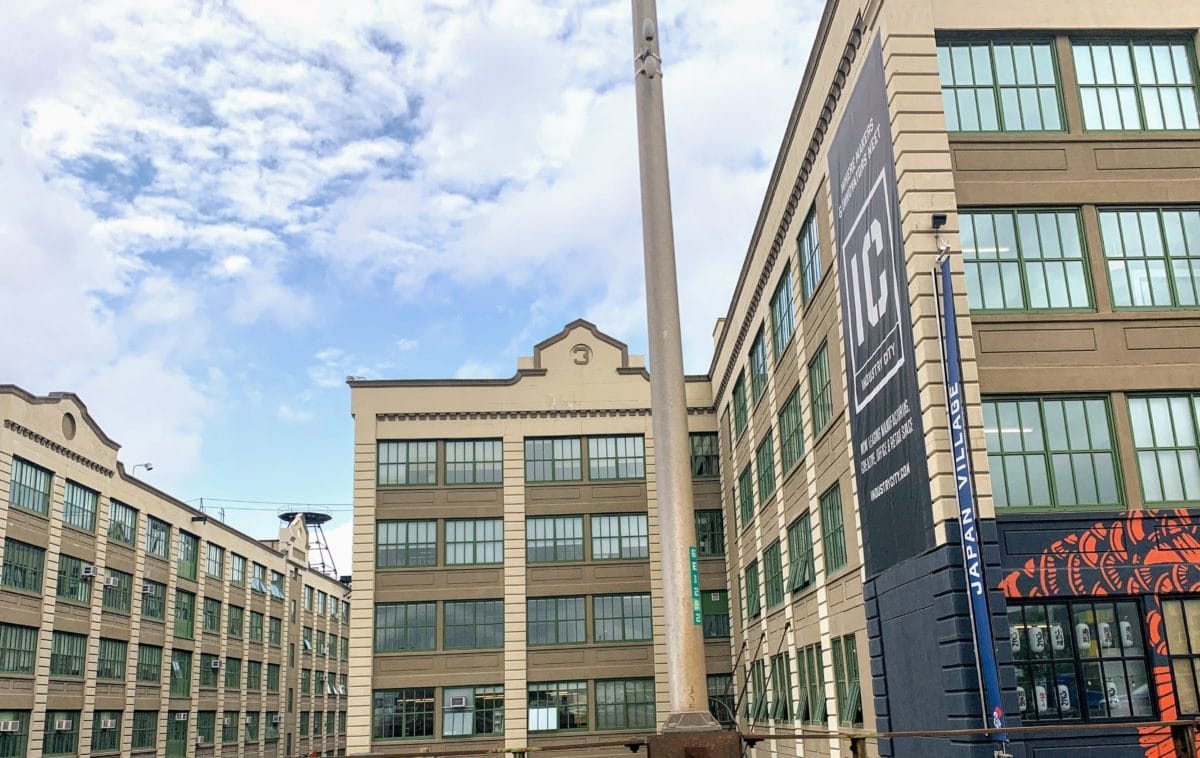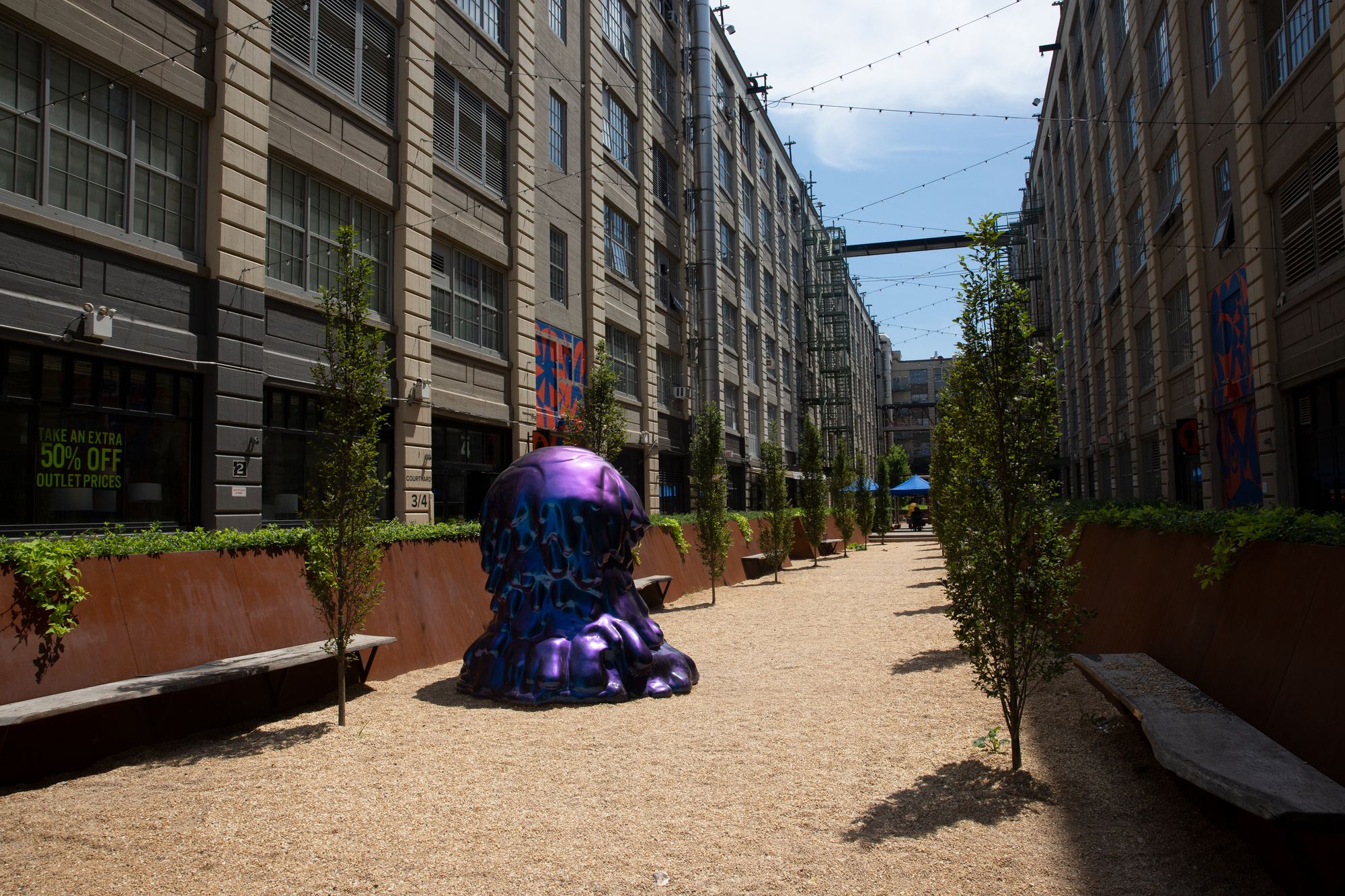Planners’ Green Light for Industry City Expansion Puts Council Speaker Corey Johnson in the Hot Seat


By Greg David, originally published by THE CITY

The City Planning Commission’s decision Wednesday to approve and send on to the City Council a major redevelopment of Brooklyn’s Industry City sets off a showdown between the ascendant economic progressive movement and longstanding business interests concerned about New York’s flailing economy.
With Sunset Park Councilmember Carlos Menchaca opposed to the plan, the Commission vote also tees up the first major challenge in more than a decade to the Council’s longstanding tradition of deferring land use decisions to the local representative.
In the hot seat is Speaker Corey Johnson, whose mayoral ambitions may depend on whether he decides to support Industry City or Menchaca.

A Council spokesperson said, “Now that this application has been approved by the City Planning Commission, the Council will review with community feedback in mind.”
The Commission voted 11 to 1 to approve the Industry City proposal to add more than 1 million square feet of commercial space and up to 600,000 square feet of classrooms to the former industrial site. The property has been turned into a waterfront hub for modern manufacturing and tech-oriented companies as well as for food and retail, plus practice space for the Brooklyn Nets.
“Historically, the residents of New York City’s lower-income communities, and our Black, Indigenous and people of color communities, are the hardest hit by economic shocks — and they have for too long been left to fend for themselves,” said Commission Chair Marissa Lago. “I believe that the Industry City proposal can help us to stop this cycle of neglect and inequity — help us to right a historical wrong.”
Lago, an appointee of the mayor as are a majority of planning commission members, noted that the city had lost 777,000 jobs since the pandemic crippled the economy — more than in the great economic decline of the 1970s when she got her start in city planning.
Hotels Back in the Mix
Several commission members said they wanted Industry City to stick to its original scheme and build two hotels, both for the jobs they would bring and because the area needs safe, quality hotels.
Eliminating the hotels has been a major demand of the community activists and Menchaca. Industry City had agreed to ax the hotels but kept them in the proposal after Menchaca announced his opposition, saying the expansion plan would accelerate gentrification in the working-class Brooklyn neighborhood.
The Council has until Nov. 4 to vote yes or no on the plan and another 15 days if it chooses to modify the application, although it is free to act earlier.
Business and labor groups are mobilizing to support Industry City which is owned and managed by Jamestown Properties and Belvedere Capital. Kathryn Wylde, president of the business association Partnership for New York City, earlier this week orchestrated a letter from 13 business groups and four labor unions pressing Johnson for approval of the Industry City plan.
“I watched that waterfront be abandoned in the 60’s and early 70’s and this is the first creative, community-centered and privately financed reuse in the area in 50 years,” said Wylde, who worked on local development in the area early in her career.
Earlier this month, Democratic Councilmembers Richie Torres of The Bronx and Donovan Richards of Queens published an op-ed in the Daily News supporting the project.
When asked about Industry City recently, Mayor Bill de Blasio said that the jobs were vitally important but that it was up to Council to decide the project’s fate.
Precedent May Not Apply
The last time the Council approved a rezoning over the objection of the local member was in 2009, when Two Trees won approval for a residential building on Dock Street in Brooklyn over the objection of then-Councilmember David Yassky. But the situation may not be comparable.
Two Trees had offered space in the building for a badly needed middle school that would accept students from then-Councilmember Letitia James’ adjoining district. James, now the state attorney general, offered strong support.
Yassky’s opposition, insiders say, was mostly pro-forma since he wanted to run for comptroller later that year and didn’t want to antagonize Dock Street opponents in Brooklyn Heights. Nevertheless, Speaker Christine Quinn came down decisively on the side of Two Trees and the school, and pushed the rezoning through.
The Industry City fight also has gained comparisons to Amazon’s failed effort to build a second headquarters in Queens. But the Brooklyn proposal, unlike Amazon’s HQ2 project, does not involve any public subsidies.
Menchaca had urged Industry City to withdraw its application when he announced his opposition, but the developer signaled Wednesday it will seek approval from the entire Council.
“By agreeing to update regulations that were put in place decades ago, city government will send a strong message that New York is ready to turn the corner and begin its recovery from the worst crises it has ever faced,” said Industry City CEO Andrew Kimball. “We will continue to make the case for this proposal and look forward to working with the City Council and other community stakeholders as the approval process enters its final phase.”
Menchaca reiterated his opposition Wednesday, citing the needs of Sunset Park residents.
“Perhaps more disturbing than what the commission said is what it did not say,” he said in a statement, “which is that the rezoning will cause a rise in rents and displacement of its working-class, immigrant families.”
Today, the City Planning Commission voted to approve the Industry City rezoning. This, by itself, is unsurprising. What IS remarkable, and deeply offensive to the Sunset Park community, is how they defended their decision with weak reasoning and glaring omissions. (THREAD)
— Carlos Menchaca 萬齊家 (@NYCCouncil38) August 19, 2020
Activists opposed to the plan confronted the mayor in Sunset Park Tuesday and asked him to veto the plan if the Council approves it.
“The unemployment crisis and the pandemic crisis are public problems and need public solutions,” said Jorge Muñiz, a member of Protect Sunset Park. “We need a public plan, and this is an old obsolete business plan modeled on the Hudson Yards development and wasn’t appropriate before and isn’t appropriate now.”
THE CITY is an independent, nonprofit news outlet dedicated to hard-hitting reporting that serves the people of New York.



